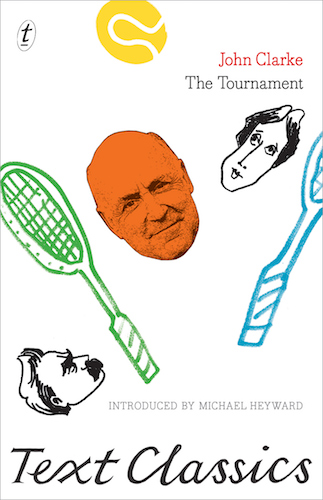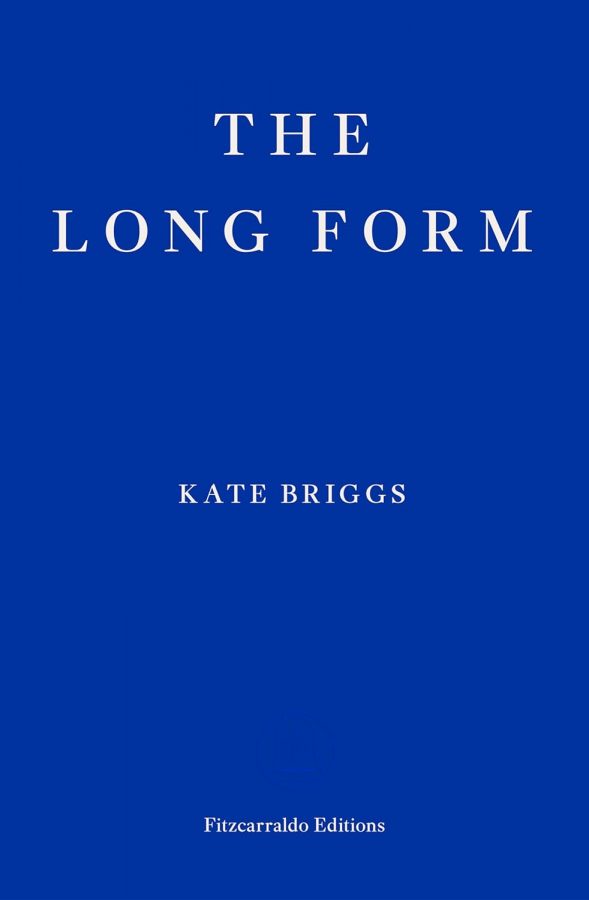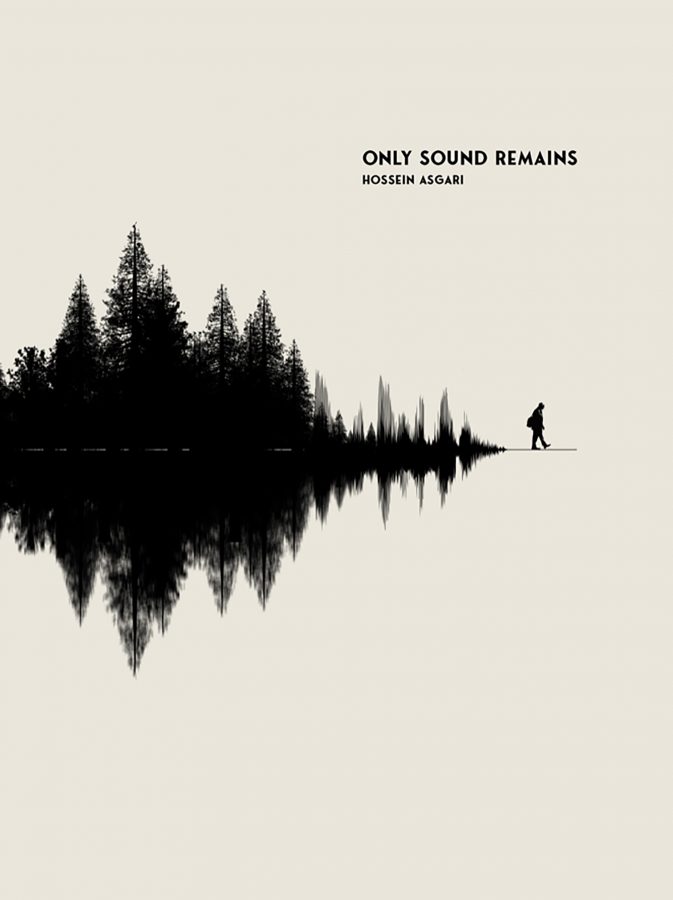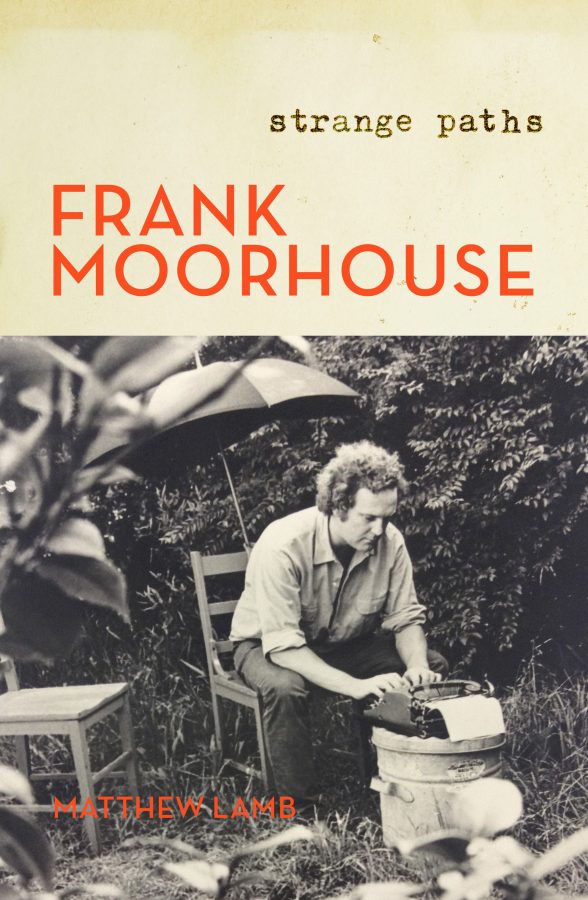The Tournament is one of the oddest and funniest books ever published in Australia. It’s like Afferbeck Lauder’s Let’s Stalk Strine, or the poems of Ern Malley: we could never have predicted its existence, but it allows us to see and hear ourselves differently. John’s early drafts made it plain that he was doing much more than imagine the great minds of the century playing each other at tennis. That would have been peculiar enough, but it would also have been merely amusing, a charming gesture.
The book John was writing was more alarming by far. He had invented an entire tournament involving hundreds of twentieth-century writers, artists, thinkers, painters, musicians and agitators of all kinds, both men and women, with seedings and rounds and form guides and injuries, singles and doubles, including the mixed. Every result was to be recorded. He had dreamed up every last lob, smash and forehand winner. It was fantastic, irreproachable, deranged. A mind like that is not answerable to anyone. Of course, Text was going to publish this book.
John Clarke had been in training to write The Tournament his whole life. He was curious about everything. He loved ideas. He was extraordinarily sensitive to language and to effects of style. He was a brilliant mimic and parodist. He had the nerveless approach of the encyclopaedist. And he adored the idiom of sports commentary. Its cadences and phrasemaking can be heard in all his work. As a young man one of his party tricks was to imitate the legendary New Zealand race caller Peter Kelly. The best effects were apparently obtained by yelling into an empty beer jug. His alter ego, Fred Dagg, who had an opinion about everything, was famous for calling a flea race and was an expert on many sports, including ‘the ancient and revered art of tennis’. Fred explained that it is ‘time-consuming to a point where you can actually think you’re busy, it’s tiring, it involves special clothing and equipment and in general terms it’s a 100 per cent bona fide waste of time’.
A decade or so later Clarke invented farnarkeling, a mythic sport with its own rules, equipment, playing fields and fans. We didn’t need farnarkeling either, but having been given it we couldn’t get along without it. We had a new word; a new holy grail, the ‘bevelled orb’; and a new national hero, Dave Sorensen. The most astonishing thing about farnarkeling is that its entire world, from the gonad to the warble to the umlaut, was conjured up in a few thousand words of laconic commentary, largely written for the television show The Gillies Report in the mid-1980s. Farnarkeling is now the Linear B of Australian history, the lost alphabet of our sporting supremacy.
Farnarkeling is funny because we recognise the voice but have no idea what is being described. It takes the clichés of commentary and transforms them into something rich and strange by making them unintelligible. What is familiar is the tone, the authority of the commentator who needs a shared language to give shape to the speechless passion of the fan. Every punter knows how much we depend on the commentator to understand but we also know how inadequate the commentator’s words are to the action itself and the complexity of our response to it:
As expected, the focus of the match was the tussle between the dangerously fit Wojek Conrad and the very remarkable Dave Sorenson. Conrad had got away from Sorenson several times early in the second warble and seemed poised to take command, but Sorenson, who had been on antibiotics to clear up a blockage in the Eustachian tubes that had caused him to surprise himself while sneezing, proceeded to take the initiative and turn on a display of arkeling that will linger in the memory. The crowning achievement was probably the Inverse Blither he performed while running backwards by reversing the position of his feet and by leaping both up and sideways as the gonad was intercepted and despatched at apparently different altitudes simultaneously. The wall he hit will be shifted before the second round of matches…
If farnarkeling was the essential precursor, The Tournament works by different rules. Instead of making the clichés of commentary indecipherable it makes them shine by applying them to the realm of aesthetic appreciation. It gives us a glimpse of how the true understanding of anything can never exclude its comic possibilities. ‘Beckett,’ Clarke tells us, ‘was nothing if not patient. He waited. In fact, waiting probably won him the match.’ Marie Stopes ‘has one of the best defensive games in the business’. Percy Grainger ‘didn’t mind being beaten’. Proust’s ‘obsession with keeping the ball in play’ leads ‘to longer and longer rallies which have weakened him to the point of collapse’. And here is Vincent van Gogh on the court:
Vangers is regarded by many as the best player never to win a grand slam tournament. Plagued by ear problems which have affected his balance and by balance troubles which have affected his ear, he has career prizemoney to date of nil. He began wildly, returning service by rocking back onto his right foot and belting the ball with astonishing power as high in the air as he could. If it came down on his own side of the net, he shouted at it and hit it again.
Tennis offered other formal opportunities. It allowed Clarke to talk about his players in couples, so that he could use one to put the other into comic relief. Spare a thought for poor Beatrix Potter, drawn to play Ayn Rand:
The players shook hands. ‘Good luck, Ayn,’ said Potter.
‘Get out of my way,’ replied Rand, ‘or I’ll fucking kill you.’
Part of the weird luminous glow of this book is its affection for its hapless participants. Parody is the purest form of admiration. Albert Schweitzer was scheduled to play Maurits Escher in a second-round match-up:
Schweitzer is no slouch and he didn’t do much wrong but at one stage he served to Escher’s backhand and Escher hit a beautiful forehand winner for 0–15. Schweitzer’s next serve was to Escher’s forehand. Escher hit a backhand winner of 0–30. Schweitzer served again, curving into the body. Escher somehow fended it back and Schweitzer hit a cross-court drive into the ad court and was passed by a shot coming back from the deuce court…‘I didn’t know where I was,’ said Schweitzer. ‘He was playing angles that weren’t there.’
Then there are the jokes on history. The Marxist philosopher Rosa Luxemburg, for instance, is drawn to play Leni Riefensthal. Clarke’s tournament does not take place in a political vacuum. The ‘Russian authorities,’ we learn, ‘want victories but are threatened by the players who achieve them.’ And ‘Nike president Friedrich Nietzsche has initiated legal proceedings against German organisers for attributing to him remarks expressing the idea that German players were supermen.’ A handful of players come to grief or disappear or are excluded from the tournament, and at least two are murdered. The survivors among John’s pantheon of writers and artists tend to be the non-conformists, the dissidents, those who diagnose oppression and resist tyranny.
When The Tournament was published, in 2002, John Clarke was in his early fifties. He was already the author of a dazzling book of poetic parodies, The Even More Complete Book of Australian Verse. He had been writing his signature political interviews for fifteen years. He had just finished The Games, which Barry Humphries described as ‘the funniest television program ever made in Australia, as well as the most brutally honest depiction of local bureaucracy’. He was, in other words, at the top of his own game.
The Tournament is a lunatic book that is deeply sane about the power and the limits of art. Its crazy games pay homage to freedom and the life of the mind. Like so much of John’s writing it reminds us that when something is both funny and true it sinks in.
First set, Mr Clarke to serve. Play!
This is the introduction to The Tournament, published by Text Classics. Details here.







